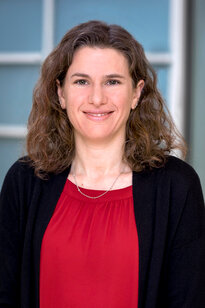Professor of Science Education, Boston College

Contact Information
Lynch School of Education
Campion Hall, Room 122
Boston College
140 Commonwealth Avenue
Chestnut Hill, MA 02467
e-mail: [email protected]
twitter: @KateMcNeill6
Google Scholar website
Video about STEM program at Boston College
Curriculum Vitae - Click here to download a pdf version of my cv (updated June 2021).
Lynch School of Education
Campion Hall, Room 122
Boston College
140 Commonwealth Avenue
Chestnut Hill, MA 02467
e-mail: [email protected]
twitter: @KateMcNeill6
Google Scholar website
Video about STEM program at Boston College
Curriculum Vitae - Click here to download a pdf version of my cv (updated June 2021).
Research Interests
Dr. Kate McNeill's research focuses on helping students with diverse backgrounds engage in equitable sense making about the world around them. Science is not about discovering or memorizing facts; rather it is about constructing arguments and considering and debating multiple explanations for phenomena. This type of explanation construction occurs within a community of scientists where different explanations are compared, debated and countered with competing explanations. In today’s society in which mass media inundates individuals with assertions and arguments, all individuals, not just scientists, need to apply those same critical skills for personal decision making, participation in societal and cultural affairs, and economic productivity. Argumentation and explanation have become increasingly prevalent as essential goals for science education in which students need to support claims using appropriate evidence and reasoning as well as consider and be critical of alternative explanations. Her research has included the development and use of the claim, evidence and reasoning (CER) framework to support students in these practices. In addition, it has focused on the social aspects of science, such as promoting student-to-student interactions where students build on and critique the ideas of their peers. Supporting students in using both the CER framework and engaging in student-to-student interactions, can help create a classroom community that emphasizes key scientific practices.
Her research on scientific sensemaking has included a variety of different areas including focusing on supporting both students and teachers. In terms of students, this work has included the design of curricular scaffolds, activity structures, teacher instructional strategies and assessments to support students in scientific sensemaking. In terms of teachers, she has conducted research around the design of professional development and multimedia educative curriculum materials (MECMs) to support teachers in developing a deeper understanding of equitable scientific sensemaking as well as reflecting on how to change their own classroom instruction to support these key learning goals.
Her research on scientific sensemaking has included a variety of different areas including focusing on supporting both students and teachers. In terms of students, this work has included the design of curricular scaffolds, activity structures, teacher instructional strategies and assessments to support students in scientific sensemaking. In terms of teachers, she has conducted research around the design of professional development and multimedia educative curriculum materials (MECMs) to support teachers in developing a deeper understanding of equitable scientific sensemaking as well as reflecting on how to change their own classroom instruction to support these key learning goals.